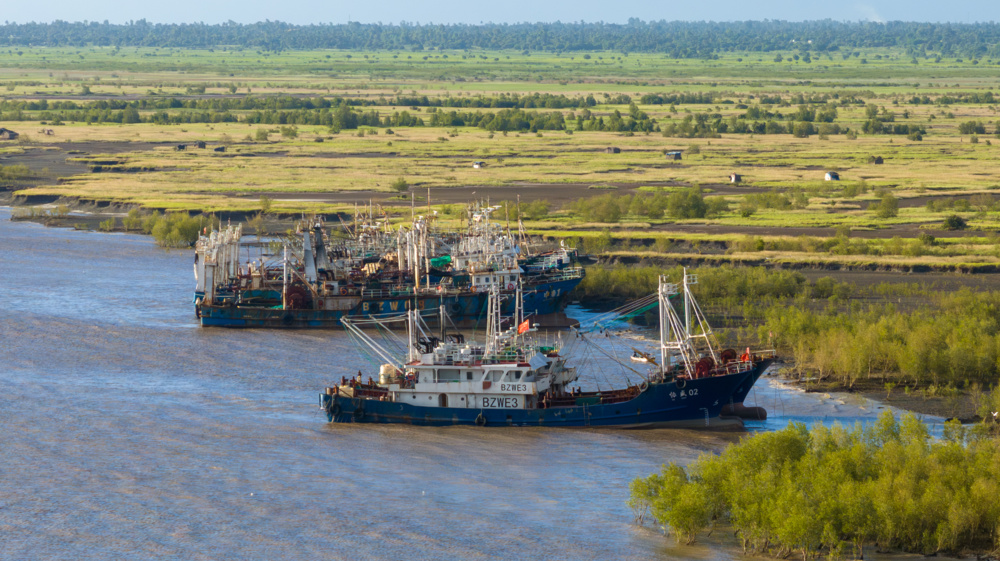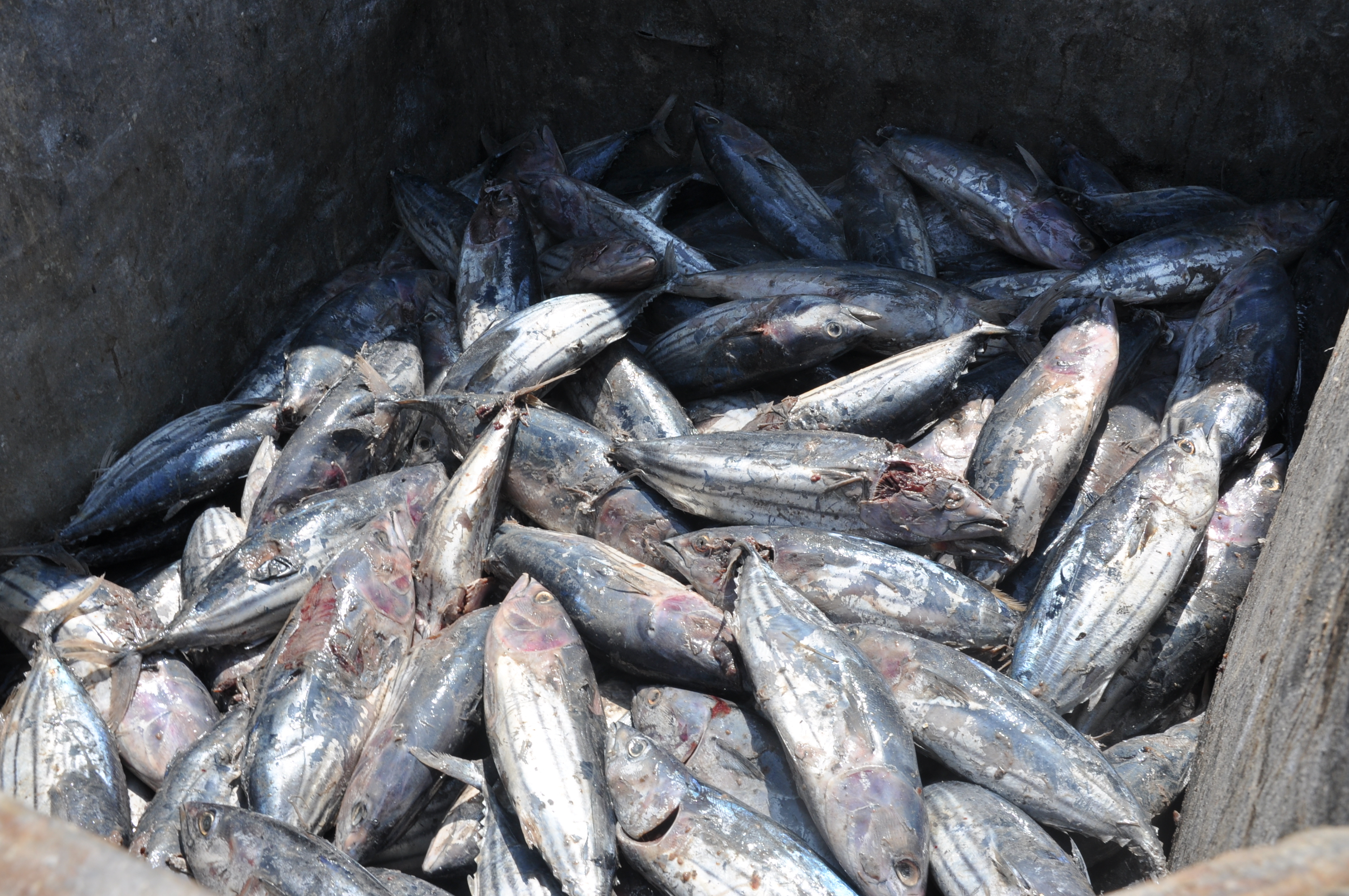
EU voters should choose better protection for the natural world this week, says Environmental Justice Foundation
As Europe heads to the polls in the critical 2024 elections, the Environmental Justice Foundation (EJF) calls for a bold agenda focused on environmental protection, climate action, and human rights. EJF's recommendations highlight strategic priorities that it says have been underrepresented in political discussions. They envision the EU's next term, from 2024 to 2029, as a period of intensified efforts to combat illegal, unreported, and unregulated (IUU) fishing and to strengthen the protection of wetlands worldwide.
An effective fight against forced labour and illegal fishing
The ocean is under serious threat from illegal fishing and overfishing, including from the Chinese distant-water fleet, which uses forced labour and highly destructive fishing techniques, and whose products can be found in EU supply chains. New EU laws will ban products made using forced labour or IUU fishing from the EU market, but only if they are effectively enforced.
The EU should swiftly implement its existing legislation (the Corporate Sustainability Due Diligence Directive and the Forced Labour Regulation) to combat these abuses, ensuring that European businesses guarantee robust and ethical EU supply chains, says the NGO. EJF also recommends that the next Commission fights illegal fishing by strengthening import controls and ensuring ambitious implementation of the new rules on CCTV systems to combat illegal and unreported discards, which remain widespread in EU waters.
Steve Trent, CEO and Founder of the Environmental Justice Foundation, commented: "Protecting the ocean is a top priority. To champion this cause, the next European Commission should focus on full and ambitious implementation of EU fisheries legislation. The EU needs to lead the fight against IUU fishing by promoting transparency and good governance in fisheries worldwide. It can only do this if it is adhering to strict standards at home. If the EU wants to protect marine biodiversity and secure the long-term health of marine ecosystems and the fishing sector, it simply must take these actions, leading by example."
An eye on wetland protection ahead of Brazil’s climate COP next year
Wetlands act as crucial carbon sinks and are among the best solutions to global heating. In the run-up to the next crucial climate summits, including COP30 in Belem, Brazil, a focus on promoting nature-based solutions to combat climate change should therefore be high on the agenda of the next European Commission, says EJF.
EJF research into Brazilian cattle ranching found that between 1990 and 2021, cattle ranching in the Pantanal, the world’s largest tropical wetland, doubled in size to cover 2.54 million hectares. Around 80% of this land, almost the size of Belgium, is used for cattle ranching, and the EU has extensive links with the industry in the region. The conversion of native vegetation to pasture has major environmental impacts. In 2020, over 38,000 square kilometres of the Pantanal burned, killing more than 17 million wild vertebrates and emitting 115.6 million tonnes of CO2, in fires local authorities reported were set intentionally.
The EU should use its influence to stop the destruction of these vital ecosystems and unlock their potential by securing investments for large-scale wetland restoration and conservation, and the prosperity of local Indigenous and traditional communities, says EJF.
Steve Trent commented: "Expanding the EU Deforestation Regulation to cover wetlands and funding 'wetland partnerships' - similar to forest partnerships - will be crucial for protecting essential ecosystems like the Pantanal, thereby supporting the European Green Deal and addressing EU international commitments on climate and biodiversity, while defending the rights of Indigenous peoples.”
“Doing this now would allow the EU to credibly call for robust action to protect globally crucial carbon sinks such as the Pantanal at upcoming climate summits, notably at next year’s COP in Brazil.”
An opportunity to ensure the EU does not waver on its green commitments
EJF argues that voters in the EU have a perfect opportunity this week: when choosing who will represent them in the European Parliament, they can focus on candidates who are committed to a healthy ocean, a stable climate, and thriving biodiversity.
Steve Trent added: “This election determines whether crucial 2030 targets, on everything from stabilising the climate to safeguarding wildlife, will be met. An unwavering commitment to high standards in EU environmental policy is a must. This ambition should be reflected both in policy priorities and in the management and selection of Commissioners.”
“I urge citizens to use their vote to ensure that the next Parliament and Commission enforce the rules against forced labour and environmental degradation, and focus on strengthening existing environmental and human rights legislation.”
ENDS
Notes to editors
EJF urges the next European Commission to direct its efforts towards the strong implementation of environmental, fisheries, and human rights laws, with a focus on taking swift action against breaches of EU law. Adequate funding and staffing will be crucial for effective enforcement at both EU and Member State level. EJF warns against any weakening of the high standards set and calls on the next Parliament and Commission to ensure that sustainability and equity remain at the heart of EU policy-making.
EJF works internationally to inform policy and drive systemic, durable reforms to protect our environment and defend human rights. We investigate and expose abuses and support environmental defenders, Indigenous peoples, communities, and independent journalists on the frontlines of environmental injustice. Our campaigns aim to secure peaceful, equitable, and sustainable futures.
Our investigators, researchers, filmmakers, and campaigners work with grassroots partners and environmental defenders across the globe. Our work to secure environmental justice aims to protect our global climate, ocean, forests, and wildlife and defend basic human rights. For more information or to speak to one of our expert analysts, please contact media@ejfoundation.org
SIGN UP FOR OUR EMAILS AND STAY UP TO DATE WITH EJF

